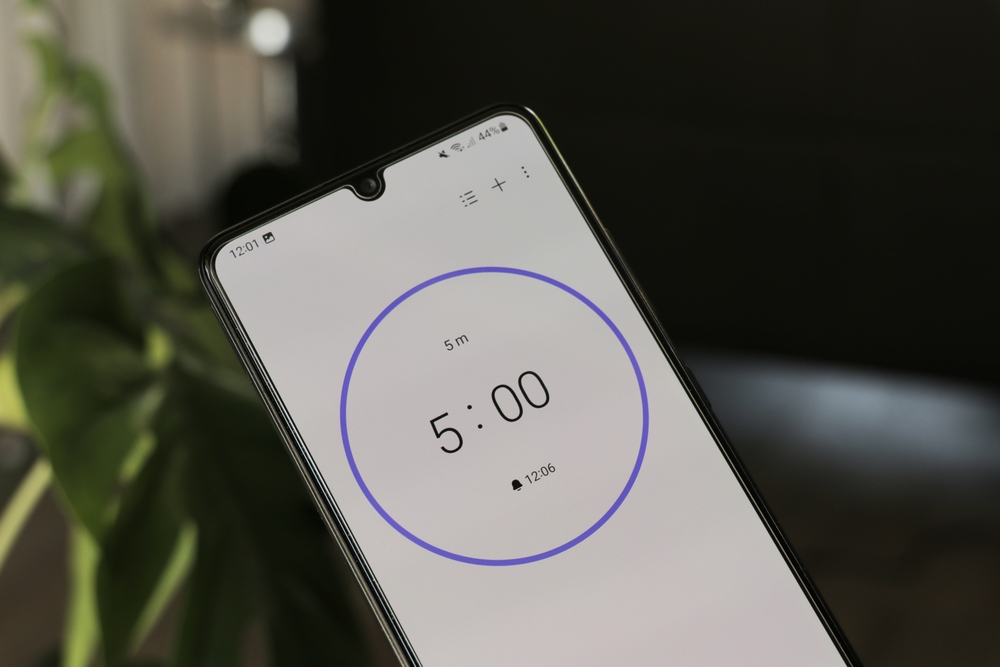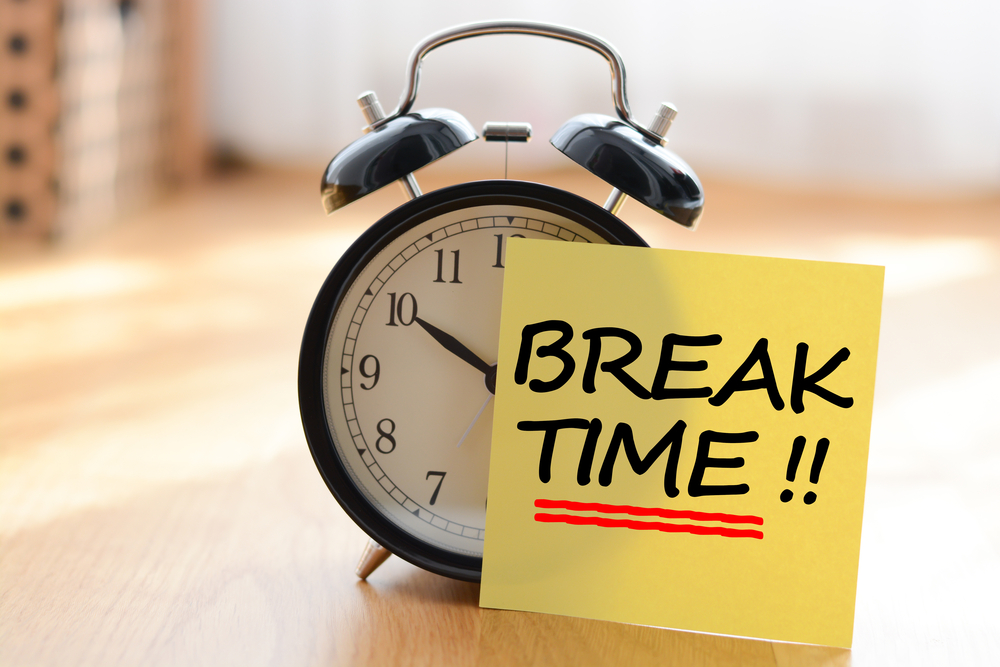We all want to be more productive, but sometimes, the thought of tackling a long to-do list can be overwhelming. Luckily, you don’t need to make huge, dramatic changes to boost your productivity. Simple, low-effort habits can make a huge difference in your daily efficiency. Here are 15 easy habits you can incorporate into your routine that will make you feel incredibly productive without breaking a sweat.
1. Break Tasks Into Bite-Sized Chunks

Large tasks can feel intimidating and overwhelming, but breaking them into smaller, more manageable parts makes them feel more achievable. Instead of focusing on the entire project, break it down into smaller steps you can work through one by one. This makes progress feel more tangible and boosts your motivation as you check off each smaller task.
The beauty of this habit is that it requires very little effort but gives you a huge return in terms of productivity. You’ll make more progress with less stress, and it can help you overcome procrastination. Tackling small steps consistently leads to big results over time. According to FasterCapital, breaking tasks into smaller chunks reduces stress, increases productivity, and provides a clear plan for achieving goals.
2. Start Your Day With a 10-Minute Plan

One of the simplest ways to boost your productivity is by taking just 10 minutes each morning to plan your day. Instead of diving into work without a clear idea of what needs to be done, set aside a few minutes to jot down your tasks. This simple habit helps you start the day with a sense of purpose and clarity. Organizing your day in advance will make you feel less scattered and more focused as the hours go by.
The key here is to keep it short and realistic. There’s no need to overthink or create an exhaustive to-do list. Just highlight the top three or four tasks that need to be tackled first, and keep the rest in your mind as secondary priorities. This quick strategy eliminates decision fatigue and helps you hit the ground running. According to University of Wyoming, disruptions to morning routines can lead to decreased productivity and engagement throughout the workday.
3. Use The Two-Minute Rule

If a task can be completed in two minutes or less, do it immediately. This simple rule keeps small tasks from piling up and overwhelming you later on. Whether it’s responding to an email or making a quick phone call, addressing small tasks as they come prevents them from becoming distractions.
The two-minute rule works so well because it’s effortless and immediate. Instead of putting off simple tasks, which can create unnecessary mental clutter, you handle them in the moment. This quick decision-making reduces procrastination and frees up your mental space for more important work. According to Hubstaff, implementing the two-minute rule can streamline workflows, reduce procrastination, and boost overall productivity.
4. Set A Timer For Focused Work

Time management doesn’t need to be complicated. Simply setting a timer for a focused work session can make a big difference. For example, work for 25 minutes straight, then take a 5-minute break. This technique, known as the Pomodoro Method, helps maintain concentration while preventing burnout.
The beauty of this habit is that it’s incredibly low-effort but effective. You’re not trying to work for hours straight without a break, but you’re still making steady progress in short bursts. According to TechTarget, the Pomodoro Technique trains individuals to focus better by limiting work intervals and ensuring restorative breaks, helping prevent burnout and procrastination effectively.
5. Keep Your Workspace Tidy

Clutter can quickly overwhelm your brain and distract you from the task at hand. A tidy workspace, on the other hand, helps you feel organized and clear-headed. Taking a few minutes each day to tidy up your desk or workspace is an easy habit that instantly improves focus and productivity.
The habit doesn’t need to be intense; simply putting away items you don’t need and organizing the space can have a significant impact. By keeping your environment clean, you create a space that fosters clarity and allows you to get to work quickly. A tidy space encourages a productive mindset with minimal effort.
6. Use The “One Thing” Approach

Focus on doing one thing at a time. The idea of multitasking is often celebrated, but research shows it reduces productivity and leads to mistakes. Instead, choose one task to focus on at a time and give it your full attention. This single-tasking method helps you complete work more efficiently without the constant mental switching that comes with juggling multiple projects.
This habit is deceptively simple but extremely effective. By channeling your focus into one thing, you not only finish the task faster but also do it with higher quality. It’s a low-effort strategy that improves your efficiency and reduces mental fatigue.
7. Set Boundaries Around Distractions

Distractions are productivity killers, but limiting them doesn’t require extreme measures. By setting simple boundaries—like turning off notifications or using a “do not disturb” signal—you can significantly reduce interruptions. For example, designate a set time to check your emails rather than letting them disrupt your flow throughout the day.
This habit is a small adjustment that has a huge payoff. Minimizing distractions for short periods helps you concentrate deeply on the task at hand. With fewer distractions, you can complete more work in less time with minimal effort.
8. Automate Routine Tasks

Take advantage of automation to reduce the time and energy spent on repetitive tasks. Whether it’s setting up automatic bill payments, scheduling social media posts, or using email filters to organize your inbox, automation frees up mental space for more important work. You can automate a surprising number of tasks in your personal and professional life with little effort.
The key to this habit is identifying where you can make your life easier with automation tools. Once set up, automation takes care of itself, saving you time and mental energy. This simple habit helps you stay productive without having to constantly manage every little task manually.
9. Learn To Say No

Sometimes, being productive is about knowing your limits and saying no to tasks or requests that don’t align with your priorities. Saying no helps you avoid overcommitting and ensures that you’re only focusing on what truly matters. This habit doesn’t require much effort but can have a huge impact on your productivity in the long run.
It’s tempting to say yes to everything, but this habit encourages you to be mindful of your time. By turning down low-priority tasks, you free up time for the things that move you toward your goals. Learning to say no is a small habit that helps you stay focused and productive.
10. Prioritize Your Tasks

Not all tasks are created equal. To be productive with minimal effort, prioritize the most important tasks first. Each morning, identify one or two tasks that will move you closer to your goals and tackle those before anything else. This ensures that even on days when you’re feeling less productive, you’ve still made progress on the most important work.
The key here is to recognize what truly matters and put that at the top of your list. By focusing on high-priority tasks first, you maximize the impact of your effort. This habit helps you accomplish more without overwhelming yourself with unnecessary tasks.
11. Delegate Whenever Possible

Delegate tasks that don’t require your direct involvement. If there are things that others can do just as well or better, let them take care of it. Delegating tasks frees up your time to focus on the areas where you can have the most impact, allowing you to be more productive with less effort.
What makes this habit effective is that it’s simple to implement and gives you more control over your time. By handing off tasks that don’t require your expertise or attention, you reduce your workload and stay focused on what truly matters. Delegating is one of the easiest ways to boost your productivity with minimal effort.
12. Embrace Microbreaks

Taking short, frequent breaks can increase your productivity. Rather than powering through long hours of work, step away from your desk for a few minutes every hour. Whether it’s a quick walk, a stretch, or just a mental reset, microbreaks prevent burnout and help you return to your tasks with renewed energy.
This habit is easy to adopt and doesn’t take much time, yet it has a big impact. Short breaks help maintain your focus and stamina throughout the day, leading to more productive hours overall. By incorporating microbreaks, you can stay energized and make more progress with less effort.
13. Practice The 80/20 Rule

The 80/20 rule, or Pareto Principle, suggests that 80% of your results come from just 20% of your efforts. Identify the tasks that will have the biggest impact and focus your energy on those. This way, you’re making the most out of the time and effort you put in.
By applying the 80/20 rule to your daily routine, you can quickly identify which tasks are worth your attention. It’s a low-effort, high-impact strategy that allows you to focus on what drives results. This habit helps you become more efficient without working harder, just smarter.
14. Set Micro-Goals

Breaking down your larger goals into small, actionable steps makes them less intimidating and easier to achieve. Instead of focusing on an entire project, set a series of micro-goals that you can check off quickly. These small wins keep you motivated and make it easier to maintain momentum throughout the day.
The advantage of micro-goals is that they’re incredibly easy to accomplish, which helps you build a sense of progress and accomplishment. This habit reduces procrastination and keeps you moving forward, even when you’re feeling unmotivated. Achieving small goals consistently leads to bigger achievements with minimal effort.
15. Reflect On Your Day

At the end of each day, take a moment to reflect on what you’ve accomplished. A quick review of your day helps you understand what went well, where you can improve, and what you should focus on tomorrow. This habit is a great way to close out your day with a sense of accomplishment and clarity.
Reflection doesn’t need to be time-consuming or detailed. Just spend a few minutes noting what you’ve achieved and how you felt about the day. This simple habit allows you to learn from each day and adjust your approach for the next one, making it easier to stay productive without adding extra effort.
Natasha is a seasoned lifestyle journalist and editor based in New York City. Originally from Sydney, during a stellar two-decade career, she has reported on the latest lifestyle news and trends for major media brands including Elle and Grazia.


